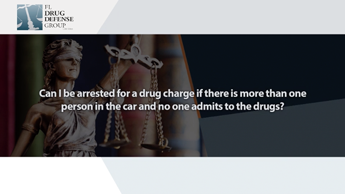Monoclonal Antibody Treatment Could Prevent Fentanyl Overdose

When a new and deadly disease appears on the scene, people often react by stigmatizing those affected by it. In the 1980s, when the first AIDS cases were diagnosed, public health officials identified gay men, people who had received blood transfusions, and people who had traveled to Haiti or used intravenous drugs as high-risk groups, and the public responded as if they would get AIDS just from being in the same room with anyone who possessed any of those characteristics. Things didn’t really get better until treatments that made HIV a survivable diagnosis became available. Fentanyl kills more people than any other drug in the United States, and most victims are unaware that they are taking it; a tiny amount of fentanyl mixed with ubiquitous and non-lethal substances such as cannabis or ADHD medication can cause a fatal overdose. Authorities react by punishing anyone caught with fentanyl excessively, as though this will make everyone else feel safer. Treatments that have become available in recent years, such as Narcan and suboxone, have prevented numerous fentanyl overdoses, and a monoclonal antibody that stops fentanyl in its tracks once it enters the body is currently under investigation. Meanwhile, prosecutors will still try to persuade the jury that you are a monster and a killer if you get caught with fentanyl. Your best defense begins with a Florida drug offenses attorney.
How Is Anti-Fentanyl mAB Different From Narcan and Suboxone?
Monoclonal antibodies (mABs) are a type of medication that attack certain disease-causing compounds in a similar way to how the body’s own immune system would. Various monoclonal antibodies are widely used as immunotherapy drugs in cancer treatment. Other mABs are used to prevent the rejection of transplanted kidneys, and to treat autoimmune diseases, migraine, and COVID infection. Researchers have developed an anti-fentanyl mAB, which neutralizes fentanyl in order to protect against overdose.
Anti-fentanyl mAB does not work as quickly as Narcan, so someone who is showing signs of opioid overdose needs Narcan instead of or in addition to anti-fentanyl mAB. The monoclonal antibody remains active for about 30 days, so if you accidentally ingest fentanyl today, anti-fentanyl mAB can protect you if you took the injection last week. Furthermore, anti-fentanyl mAB can tell the difference between fentanyl and other opioids. Therefore, if you take suboxone as a treatment for opioid use disorder and someone passes you a fentanyl-laced joint at a party, the anti-fentanyl mAB will protect you from the fentanyl but will not interfere with the suboxone.
A monoclonal antibody that still requires more studies before it can receive regulatory approval for clinical use in humans will not, by itself, change the outcome of your current legal case. Instead, you must base your arguments on the strength or weakness of the evidence against you and whether the criminal process has violated your rights.
Contact FL Drug Defense Group About Fentanyl Cases
A Central Florida criminal defense lawyer can help you if you are facing criminal charges for possession of fentanyl. Contact FL Drug Defense Group in Orlando, Florida to discuss your case.
Sources:
jpet.aspetjournals.org/content/385/S3/513
axios.com/local/tampa-bay/2023/07/31/antibody-treatment-fentanyl-florida-overdoses







